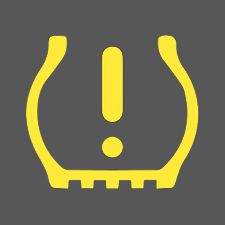Tyre Pressure Monitoring System (TPMS) Services
At Merityre Specialists, our expert technicians are fully trained to inspect, service, and replace car tyre pressure sensors for European vehicles. Whether you need advice, maintenance, or a replacement, we’ve got you covered. Learn more about tyre pressure monitoring systems (TPMS) and how they can enhance your driving experience.
What is a TPMS?
A Tyre Pressure Monitoring System (TPMS) is a safety feature required on all vehicles approved from November 2012. This system continuously monitors the pressure in your tyres and alerts you if it begins to drop. It’s a critical tool for ensuring road safety, as it can warn you of punctures or blowouts in real time.

How do Tyre pressure sensors work?
Each wheel is fitted with a sensor valve that measures air pressure. If pressure drops below 25% of the recommended level, the system sends a radio transmission to activate a warning light on your dashboard. This notification allows you to address the issue promptly, avoiding further damage or accidents.
Benefits of a TPMS
A functioning TPMS offers multiple advantages:
Improved Fuel Efficiency: Correctly inflated tyres reduce fuel consumption and save you money.
Enhanced Driving Performance: Accurate tyre pressure optimises braking, grip, and cornering.
Prolonged Tyre Life: Prevents premature wear caused by under-inflation.
Environmental Benefits: Reduced carbon dioxide emissions due to better fuel efficiency.
By alerting you to low pressure, the TPMS helps maintain fuel efficiency, prolong tyre life, and improve your driving safety and performance.
How Do I Know If My Car Has a TPMS?
All vehicles manufactured after November 2012 are equipped with a tyre pressure sensor, and from 2014, UK law mandates TPMS in all new cars.
If your vehicle uses a ‘direct’ TPMS, the dashboard will display a horseshoe-shaped icon with an exclamation mark when tyre pressure drops. This warning may appear when starting the vehicle or during operation.
Car TPMS Services at Merityre Specialists
Merityre Specialists can inspect and maintain your TPMS system to ensure safe and efficient operation. During a tyre inspection, we will:
Assess the condition of the sensor valves and electronic system.
Replace components if needed to maintain optimal functionality.
For vehicles without TPMS, we offer the AirAware Kit, which provides similar benefits.
Simply schedule an appointment at your nearest Merityre branch for a comprehensive TPMS inspection.
Tyre Pressure: Why It Matters
Keeping your tyres inflated to the manufacturer’s recommended pressure is crucial for safety, performance, and fuel efficiency. Tyre pressure impacts:
Grip and Handling: Correct pressure enhances stability on the road.
Braking Distance: Under or over-inflated tyres compromise stopping ability.
Fuel Consumption: Proper pressure reduces fuel usage.
Signs Your Tyres Need Checking:
Keeping your tyres inflated to the manufacturer’s recommended pressure is crucial for safety, performance, and fuel efficiency. Tyre pressure impacts:
Uneven or excessive wear.
Reduced grip or handling issues.
Visible damage.
The Risks of Incorrect Tyre Pressure
Under-Inflated Tyres
Tyres lose pressure naturally over time. Under-inflated tyres cause:
Increased wear on edges due to uneven contact.
Poor handling and longer braking distances.
Excessive heat build-up, increasing the risk of damage.
Over-Inflated Tyres
Over-inflation results from adding too much air, leading to:
Limited road contact, reducing grip and increasing braking distances.
Uneven tyre wear, particularly at the centre.
Reduced shock absorption, making tyres prone to damage.
Both conditions can also lead to higher fuel consumption.
Free Tyre Pressure Check at Merityre Specialists
Checking your tyre pressure is simple:
Refer to your vehicle handbook for the recommended pressure.
Adjust pressure at petrol station facilities or with a home gauge.
Alternatively, visit your local Merityre branch for a FREE tyre check. Our experts will ensure your tyres are in peak condition, checking pressure, tread depth, and overall tyre health.
Buy Tyres Online
Need new tyres? Explore our selection and purchase online today.
Schedule Your Appointment Today!
Visit Merityre Specialists for expert TPMS services and ensure your tyres are safe and efficient.